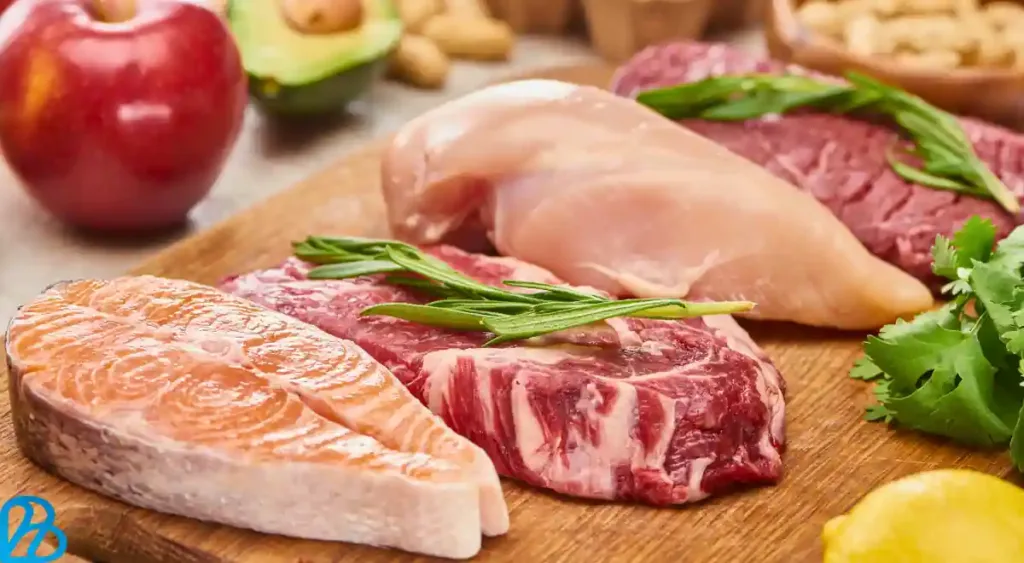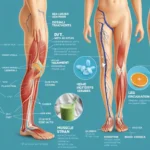How to lose weight on a carnivore diet with expert tips and strategies. Start your weight loss journey today!
Embarking on a weight loss journey can be as personal as transformative. For individuals seeking a simple and natural yet effective diet, the carnivore diet offers an intriguing option. By focusing exclusively on animal products, this minimalistic eating approach claims medical and anecdotal backing for its weight loss potential. However, as with any dietary undertaking, understanding and approaching the nuances is crucial. Here’s a guide for anyone looking to shed pounds through a carnivore diet—a journey that can be rewarding with the proper knowledge and commitment.
What is a carnivore diet
One type of diet is called the Carnivore Diet, which consists solely of animal-based foods. It excludes all plant products and focuses on meat, fish, eggs, and sometimes certain dairy products. Proponents of the Carnivore Diet believe it can improve health, reduce inflammation, and promote weight loss.
What foods can you eat on the carnivore diet?
Foods You Can Eat on the Carnivore Diet
The Carnivore Diet primarily consists of the following foods:
– Meat: This includes red meat, poultry, pork, lamb, beef, and organ meats like liver, heart, and kidneys.
– Fish: Fresh and saltwater fish, such as salmon, tuna, mackerel, trout, and sardines, can be eaten on the Carnivore Diet.
– Eggs: Whole eggs are a source of protein and can be eaten raw, cooked, or scrambled.
– Certain Dairy Products: Some individuals allow dairy products like cream, butter, and cheese to be included in the Carnivore Diet.

Also Read- Weight Loss- Benefits of Using 7 Natural Remedies
What are the benefits of carnivore diet
Benefits of the Carnivore Diet
Lovers of the Carnivore Diet say that it has many health benefits. Some potential benefits include:
1. Weight Loss: The Carnivore Diet is high in proteins and low in carbs, which may assist you lose weight by suppressing hunger while boosting feelings of fullness.
2. Reduced Inflammation: Animal-based foods, particularly grass-fed beef and wild-caught fish, contain anti-inflammatory compounds that may help reduce chronic inflammation.
3. Improved Gut Health: The absence of fiber and plant compounds in the Carnivore Diet may help improve gut health by reducing digestive issues and promoting the growth of beneficial bacteria.
4. Improved Nutrient Absorption: Animal-based foods contain complete proteins, which are easy to digest and absorb, making them an ideal source of essential nutrients.
5. Increased Energy Levels: The Carnivore Diet can provide a steady energy supply without the need for carbohydrates, which can contribute to fatigue.
6. Mental Clarity: Some individuals report improved mental clarity and focus while following this diet.
7. Athletic Performance: Athletes may find that the Carnivore Diet enhances their athletic performance by improving recovery times and providing the necessary nutrients for muscle growth and repair.

It is important to note that the Carnivore Diet is a restrictive and controversial dietary pattern, and you should be discuss its benefits and risks with a healthcare professional before considering it.
How to Lose Weight on a Carnivore Diet
Step 1: Understand the Carnivore Diet
– Principles and Restrictions
The carnivore, or zero-carb, is based on consuming animal items like seafood, eggs, meat, and dairy products while omitting plant-based foods. Advocates of this diet claim benefits such as improved digestion, mental clarity, and rapid weight loss. Its principles revolve around eliminating the antinutrients found in many plant foods, which, they assert, are not well-tolerated by the human body. Understanding the origins and science and any potential health implications is vital before you begin.
Step 2: Set Your Goals
– Establish Realistic Expectations
Setting achievable weight loss goals is the foundation of your journey on the carnivore diet. Whether losing a certain number of pounds or fitting into a specific clothing size, be realistic with your goals. Aim for a steady, sustainable pace of weight loss, typically about 1-2 pounds per week. Remember, the journey is personal, and everyone’s body reacts differently to a new diet.
– Track Your Progress
To obtain your targeted results, monitor your advancement diligently. Keep a journal, use an app, or take body measurements to monitor changes. It will keep you accountable and remind you of the progress you’re making, especially during challenging times.
Step 3: Plan Your Meals
– Balancing Nutrition
A well-organized meal plan is critical for success on the carnivorous diet. Focus on including a variety of meats, organ meats, and fatty cuts for crucial nutrients. Balance your protein and fat intake to sustain energy levels and keep satiated.
– Consistent Eating Patterns
Try to maintain regular eating times to avoid overeating and to keep your metabolism consistent. Aim for three nutritious meals a day with minimal snacking, if necessary. This approach can help set your body’s internal clock for better digestion and energy utilization.
Step 4: Monitor Your Caloric Intake
– Understanding Energy Balance
Weight loss is fundamentally about consuming fewer calories than your body uses. Despite the carnivore diet’s emphasis on certain types of food, caloric control remains a significant factor. Use a food scale or app to monitor portions and keep your intake in check accurately.
– Avoiding Excessive Fats
While fats are an integral part of the carnivore diet, they are also calorie-dense. Avoid overindulging in high-fat cuts and focus on nutrient-rich, lean meats alongside moderate portions of healthy fats like butter and certain oils and fatty fish.
Step 5: Incorporate Intermittent Fasting
– Complementing Diet with Timing
Intermittent fasting (IF), a structured eating routine that alternates between times of fasting and eating, can enhance the benefits of the carnivore diet. By condensing your eating window, you may naturally consume fewer calories, which can be helpful for weight management. Start with a 16:8 fasting window (16 hours fasting, 8 hours eating) and adjust as you see fit.

Step 6: Stay Hydrated and Active
– The Role of Water
Drinking enough water is crucial for any effective weight loss plan, including the carnivore diet. It keeps you hydrated, supports optimal body function, and can also help control hunger and flush out toxins.
– Physical Activity
Including regular exercise in your everyday routine can help you burn additional calories while maintaining your muscle mass. Combine weight training with other cardiovascular exercises tailored to your fitness level. Remember that small amounts of activity might have an impact., so find something you enjoy and stick with it.
Step 7: Prioritize Quality Sleep
– Weight and Rest
People frequently disregard good sleep when trying to lose weight. Lack of sleep can lead to imbalanced hunger hormones, overeating, and weight gain. Prioritize a good night’s sleep and establish a relaxing pre-sleep routine, free from screens and stress, to support your weight loss goals.
Step 8: Track Your Progress
– Weight Tracking and Adjusting
Regularly tracking your weight loss progress and adjusting based on your results is crucial. If you need to lose weight as expected, revisit your meal plan, caloric intake, or other lifestyle habits. Be willing to experiment and find what works best for your body within the boundaries of the carnivore diet.
– Mindful Eating
Practising mindfulness during meals can help you recognize true hunger and fullness, promoting healthier eating habits. Eat slowly, pay attention to the texture and flavour of your food, and listen to your body’s cues.
Also Read- Quick Weight Loss In 2 Weeks-
Conclusion- How to Lose Weight on a Carnivore Diet
Weight loss on a carnivore diet can be a transformative experience but requires dedication and a strategic approach. By understanding the principles of this dietary approach, setting clear goals, planning your meals, monitoring caloric intake, incorporating intermittent fasting, staying hydrated and active, prioritizing sleep, and tracking your progress, you can achieve your desired weight loss. Recall that long-term, sustained weight loss is a journey, not a destination, and embrace the process with patience and perseverance. Happy dieting!
Hi there! I’m content writer and blogger. With over two years of experience, I’ve shared my passion for writing across various platforms. I firmly believe in the transformative power of words and look forward to sharing this journey with you. Enjoy my work!










